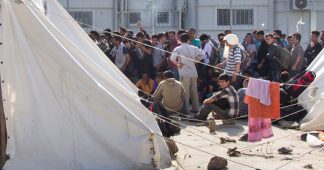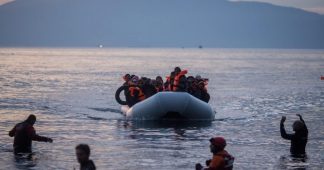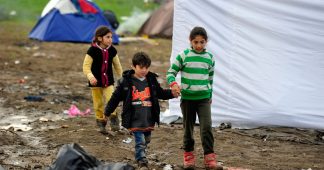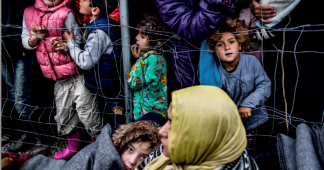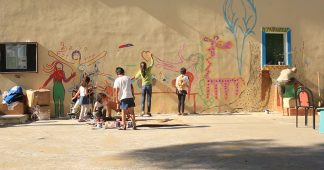August 31, 2019
The mass arrival of migrants and refugees on Lesvos two days ago, alerted the Greek government with Prime Minister Kyrakos Mitsotakis to have called for an urgent meeting of the Government Council for Foreign Affairs and Defence (KYSEA) on Saturday morning. Decongestion of the hotspots on the islands, and especially Moria, are high priority of the government.
There is a 25% increase of arrivals during the summer months, that is 5,000 more people, state broadcaster ERT reported.
One of top priorities is to decongest the hotspots on the islands of the Eastern Aegean Sea, starting with the hotspot of Moria on Lesvos.
Other priorities the transfer of unaccompanied minors to safer environment or to family reunification and increase the surveillance mechanism. At the same time, the Greek government plans to change the asylum procedures with those whose application has been rejected to be deported to the country they came from as soon as possible.
Specifically the measures to be taken are:
– Decongestion of islands hotspots by transferring migrants / refugees to already existing structures in the mainland.
– Immediate transfer from the islands of 116 unaccompanied children to reunite with their families in other European Union countries with which agreement has already been reached. In the coming weeks, an additional 250 unaccompanied children will be moved to safe inland structures.
– Increase border surveillance, in cooperation with both FRONTEX and the European authorities, as well as with NATO. In this context, the adoption of the National Integrated Maritime Surveillance System (ESTHET) is planned. It is a 50 million euro budget system that interconnects the Coast Guard and Coast Guard systems with the use of new technologies (“simple” and thermal cameras, drones, etc.).
– Changing the institutional framework for the asylum procedure. The change will abolish the the second level of appeals in order, in case an asylum application will be rejected. The change foresees the immediate return/deportation of the applicant to the country of origin. Always respectful of the acquis communautaire and of the full implementation of the European Union-Turkey Joint Declaration. In this context, Turkey should also be responsible.
– Increased of police controls on the islands and the mainland to identify persons who had applied for asylum but their application was rejected by the courts. It is noted that there are several thousand such cases and that the Police have already identified approximately 1,000 persons for whom their return process is underway.
– Immediate supply of 10 new flexible small boats for rapid response in case of movements of migrants / refugees by traffickers departing from the Turkish coast to the Greek islands.
– Supporting local communities where the hotspots are by empowering the necessary infrastructure and staff (eg support to Lesvos medical and nursing staff).
– Moria hotspot: 1,002 refugees belonging to high-vulnerability groups will be transferred from the Moria hotspot on Lesvos to the Nea Kavala centre in the Kilkis area of northern Greece. The transfer is schedule on 3. September. Two Greek Navy landing craft will be used for the purpose.
Migrants and refugees at the Moria hotspot have reached a total of 10,241. The number is much higher than what the facilities can support, turning the center into the largest Reception and Identification Center in Europe.
“Greece is in close cooperation with our partners in the European Union on this issue,” government spokesman Stelios Petsas said on Saturday after the KYSEA meeting.
In a coordinated action, 13 boats with 547 migrants arrived at Skala Sikamias, Lesvos on Thursday. Among them were 177 men, 124 women and 246 children. 193 were transferred to the Moria centre and the rest remained at the UNHCR camp in Sykamia, the so-called “stage 2”, with the prospect of being transferred to Moria for registration.
The next day, the Greek Foreign Minister summoned the Turkish ambassador to Athens to express Greece’s deep dissatisfaction over the mass arrivals.
Published at https://www.keeptalkinggreece.com/2019/08/31/greece-migrants-refugees-measures-kysea/
